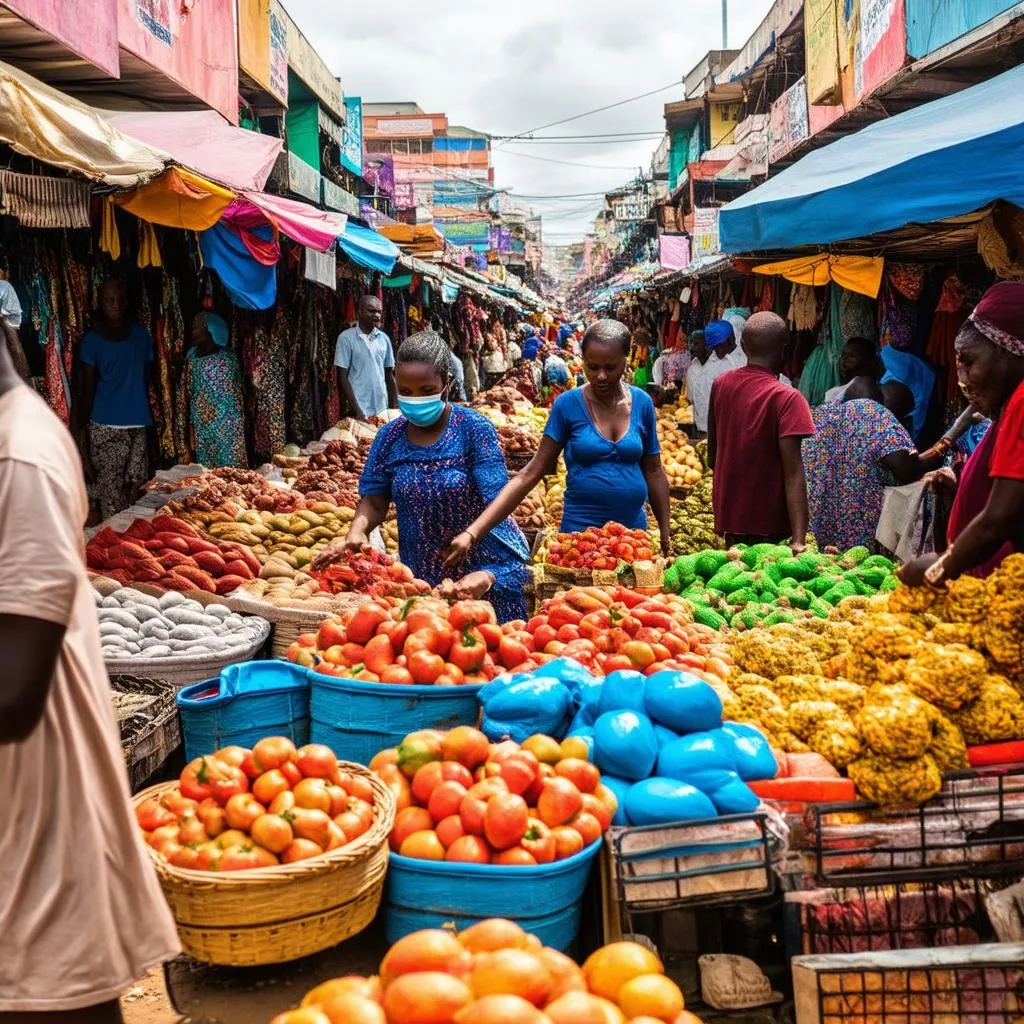Have you ever dreamt of exploring the vibrant markets of Lagos, witnessing the power of nature at Yankari National Park, or immersing yourself in the rich culture of the Yoruba people? Nigeria, with its diverse landscapes and captivating history, has a lot to offer intrepid travelers. But the question often arises: Is Nigeria Safe To Travel?
The answer, like the country itself, is multifaceted. While Nigeria faces security challenges, particularly in certain regions, painting the entire nation with a broad brushstroke wouldn’t do justice to its beauty and the warmth of its people.
This article delves into the nuances of safety in Nigeria, providing a balanced perspective to help you make informed travel decisions.
Understanding the Security Situation in Nigeria
It’s crucial to acknowledge that Nigeria has faced security issues, including terrorism, banditry, and kidnappings, primarily concentrated in specific areas. The northeast region, particularly Borno and Yobe states, has been grappling with Boko Haram insurgency for over a decade.
However, it’s important to remember that:
- Vast areas of Nigeria remain relatively safe for travel. Popular tourist destinations like Lagos, Abuja, Calabar, and the Obudu Mountain Resort have robust security measures in place.
- The Nigerian government is actively working to address security concerns. They are collaborating with international partners to combat terrorism and improve national security.
Tips for Staying Safe in Nigeria
1. Research Your Destination:
Before you pack your bags, thoroughly research your chosen destinations. Check travel advisories from your home country and reputable sources like the UK Foreign Office or the US Department of State.
2. Register with Your Embassy:
Upon arrival, register your presence with your embassy or consulate. This allows them to contact you in case of emergencies and provide necessary assistance.
3. Hire a Reputable Local Guide:
Navigating unfamiliar territories is always easier with a knowledgeable guide. They can offer valuable insights into local customs, safe areas to visit, and potential risks to avoid.
4. Stay Informed About Current Events:
Keep yourself updated on current events and potential security risks by following local news outlets and heeding advice from local authorities.
5. Exercise Caution in Crowded Areas:
Like any major city worldwide, crowded markets, public transportation hubs, and large gatherings can be susceptible to petty crime. Be vigilant about your belongings and surroundings.
6. Respect Local Customs and Traditions:
Nigeria is a culturally diverse nation. Familiarize yourself with local customs and traditions to ensure respectful interactions and avoid unintentional offenses.
Planning Your Nigerian Adventure
Choosing Your Destinations
- For cultural immersion: Lagos, the bustling commercial hub, offers a vibrant arts and music scene, while the ancient city of Benin is renowned for its bronze castings.
- For nature enthusiasts: Yankari National Park is home to diverse wildlife, including elephants and lions, while the Obudu Mountain Resort provides breathtaking views and hiking trails.
- For history buffs: Explore the Osun-Osogbo Sacred Grove, a UNESCO World Heritage Site steeped in Yoruba mythology, or visit the historical city of Kano with its ancient walls and vibrant indigo dyeing pits.
Getting Around Safely
- Domestic Flights: Air travel is generally considered a safe and efficient way to navigate between major cities in Nigeria.
- Private Transportation: Consider hiring a car and driver from a reputable company for added security and convenience, especially when traveling between cities or to remote areas.
- Ride-Hailing Services: Popular ride-hailing apps operate in major cities like Lagos and Abuja, providing a relatively safe and affordable mode of transport.
Embracing the Warmth of Nigerian Hospitality
Despite the challenges, Nigeria offers a unique and rewarding travel experience. The people are known for their warmth, hospitality, and infectious zest for life.
As Dr. Emeka Nwadike, a renowned anthropologist specializing in West African cultures, aptly puts it, “To truly understand Nigeria, you need to experience its vibrant culture firsthand. The warmth of its people will stay with you long after you’ve left its shores.”
Remember, informed travelers are empowered travelers. By taking necessary precautions, respecting local customs, and embracing the spirit of adventure, you can have a safe and unforgettable journey through the heart of Nigeria.
Frequently Asked Questions
Q: Can I use US dollars in Nigeria?
A: While some larger hotels and businesses may accept US dollars, it’s advisable to exchange your currency for Nigerian Naira at authorized banks or exchange bureaus for the best rates.
Q: Do I need a visa to travel to Nigeria?
A: Most nationalities require a visa to enter Nigeria. It’s recommended to apply for your visa well in advance through the Nigerian embassy or consulate in your home country.
Q: What is the best time to visit Nigeria?
A: The best time to visit Nigeria is during the dry season, which typically runs from November to April. However, certain regions may have microclimates, so it’s essential to check the weather conditions for your specific destinations.
Q: Is it safe to drink tap water in Nigeria?
A: It’s generally advisable to stick to bottled water in Nigeria, especially when traveling outside major cities.
 Bustling marketplace in Lagos, Nigeria
Bustling marketplace in Lagos, Nigeria
 Elephants at Yankari National Park
Elephants at Yankari National Park
By staying informed, planning carefully, and embracing the spirit of adventure, you can have a safe and memorable journey to this captivating West African nation. For more travel tips and insights, explore other informative articles on travelcar.edu.vn.